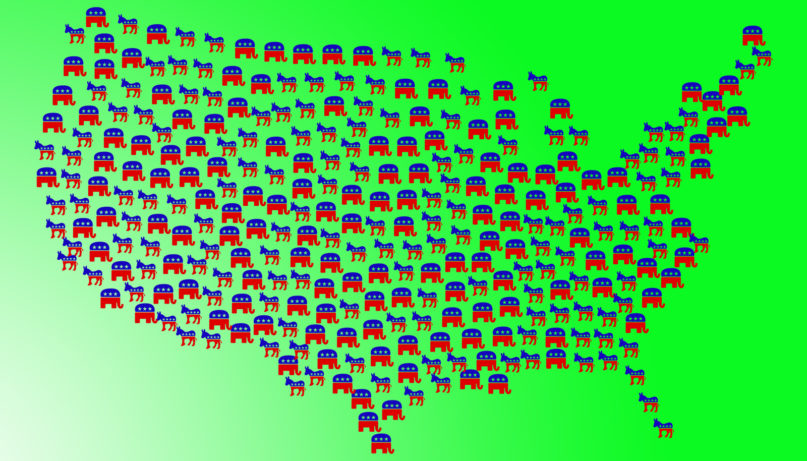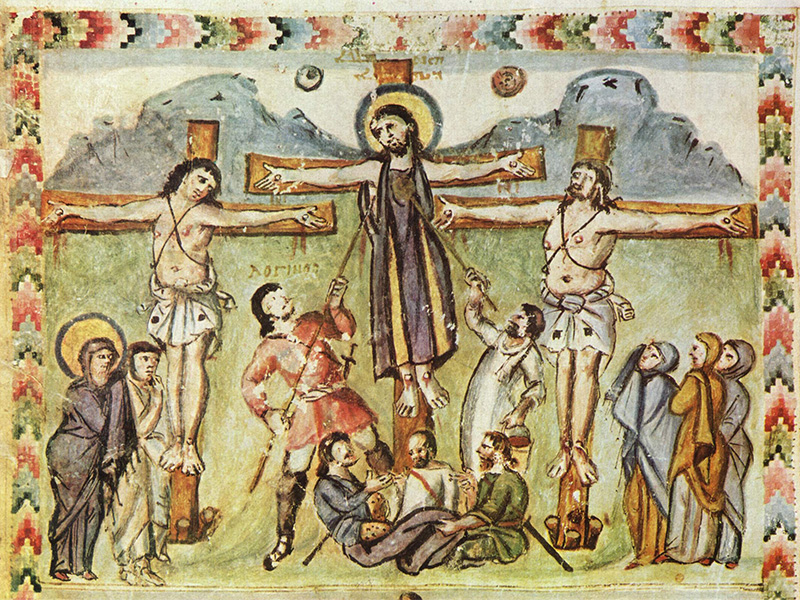(RNS) — Our public discourse and politics feel like they are about to explode, don't they?
With the fallout from President Donald Trump's impeachment trial coinciding with the beginning of the 2020 election cycle, the outlook for the longer term appears positively frightening.
but appears can be deceiving. while Congress, the Twitterati and speaking heads on cable information are at each other's throats, the thought that the regular public is polarized is, to claim the least, overstated.
As I've highlighted in other contexts, Pew finds that a whopping forty four% of americans now establish as impartial — the highest percent in the seventy five years Pew has been tracking this number. against this, Pew found that simplest 27% establish as Democrats and 26% as Republicans.
a massive 2018 study of political affiliation within the U.S. titled "Hidden Tribes" discovered, as The long island times put it, that the majority americans "don't see their lives through a political lens, and when they have got political opinions the views are a ways much less rigid than these of the highly politically engaged, ideologically orthodox tribes." certainly, two-thirds of U.S. residents belong to what the study described as an "exhausted majority" whose members "share a sense of fatigue with our polarized countrywide conversation, a willingness to be bendy of their political viewpoints."
whereas the gatekeepers of our public discourse have a economic interest in keeping us anxious and adverse, the actual statistics demonstrate that talk across difference is viable. Even hopeful.
We ought to, however, take care in how we go about doing it.
lower back in 2012 I published a chunk with five advice for civil discourse, together with humility, solidarity, keeping off binary considering and dismissive identify-calling and, finally, leading with what you're for, no longer what you're against.

graphic with the aid of Gordon Johnson/Pixabay/artistic Commons
however I left out whatever thing definitely vital, and that i (re)discovered it again after I recently attended a conference put on with the aid of the Catholic lay group Focolare a pair weeks in the past titled "a hearth for the Human household."
The Focolare, which by statute should be led by using a lady, came to be all over the bombing of Trent, Italy, all through World warfare II when the neighborhood's founder, Chiara Lubich, and her pals huddled by means of the fire (Focolare potential "hearth" in Italian) and opened the Bible to Jesus' prayer "that all may be one."
From then on, the Focolare would focus on harmony, and especially on communicate across change, aimed at working towards that cohesion.
And, boy, has the community been a success. Focolare has brought a wide range of Catholic, Protestant, non-Christian and secular folks from all over the area into talk on various styles of issues, the entire whereas retaining its contributors' religion in Jesus, his blessed mom and the church on the forefront of their spiritual life.
The group's outreach has been extensive-ranging. In 1982, Lubich situated a faculty for Oriental Religions within the Philippines to foster realizing between Christians and followers of Hinduism, Buddhism and other eastern religions. an extended-standing relationship between Focolare and American Muslims all started with her consult with to the Malcolm Shabazz Mosque in Harlem in 1997.
A key element of Focolare's passion for connecting changed into born out of the terrifying journey of a horrific war: the ethic of "Jesus forsaken," which the community calls "the key to cohesion."
Unified love may be the tree of Christianity, but Lubich understood the roots to be the suffering of Jesus abandoned by way of the daddy on the go. Christ's premier act of love changed into to suffer vastly, and the Focolare, beneath her route, would observe his instance with a willingness to endure toward the goal of unity.

An early crucifix ion depiction in an illuminated manuscript, from the Syriac Rabbula Gospels from 586 CE, indicates both the sun and moon in the sky in the back of Christ. photo courtesy of creative Commons
This photo is accessible for net and print publication. For questions, contact Sally Morrow.
vastly, the goal isn't just to unite one's personal lifestyles to that of Jesus forsaken, but also to look him in our neighbor.
This proposal is absolutely elementary to how we suppose about dialogue, especially in an era described by means of mass sorting into political and theological camps. with no trouble put, we ought to seek out the suffering of Jesus forsaken.
now not as an conclusion in itself, of route. It isn't masochism.
somewhat, it comes from a realization that our attempts at talk throughout large ameliorations require us to be willing to undergo in the middle of the exchange.
this is a tough saying in our current moment. A reader can be thinking, "could I really interact with a MAGA hat-donning Trump supporter?" Or "could I definitely interact with the reader at Drag Queen Story Hour?" The difficulties may be profound, however speak in these instances certainly skill that we make ourselves, and our values, susceptible in ways that produce profound anxiety.
The upside, although, is that embracing Jesus forsaken ability getting outside ourselves to find the pain and abandonment in these with very distinct facets of view. Acknowledging and getting to know greater about that ache no longer best helps us improved take into account where americans are coming from, it can blast open the defensive shells so many of us created. What follows are the conditions for the alternate of specific concepts.
focusing on Jesus forsaken, perhaps counterintuitively, does not lead to greater despair. any person who has met the Focolarini — lots of lay individuals dwelling a targeted existence in communities in every single place the realm — knows them to be one of the vital most completely satisfied people one has ever met.
perhaps it is involving what Pope Francis described this week as the pleasure of one who "has the stigmata." The joy that comes after God "exams our limits" and whatever thing we couldn't have imagined comes from taking what we notion initially changed into an "unthinkable course."
If there is to be actual talk across change all over the 2020 election cycle, the Focolare reminds us that we may still predict to undergo profoundly, and in techniques for which we are not organized. but we should also have the hopeful and glad expectation that God's grace will beautifully transform our encounters into something for which we're equally unprepared.
(Editor's notice: This piece in the beginning stated that Lubich's consult with changed into in 2012. The suitable yr become 1997.)



No comments:
Post a Comment